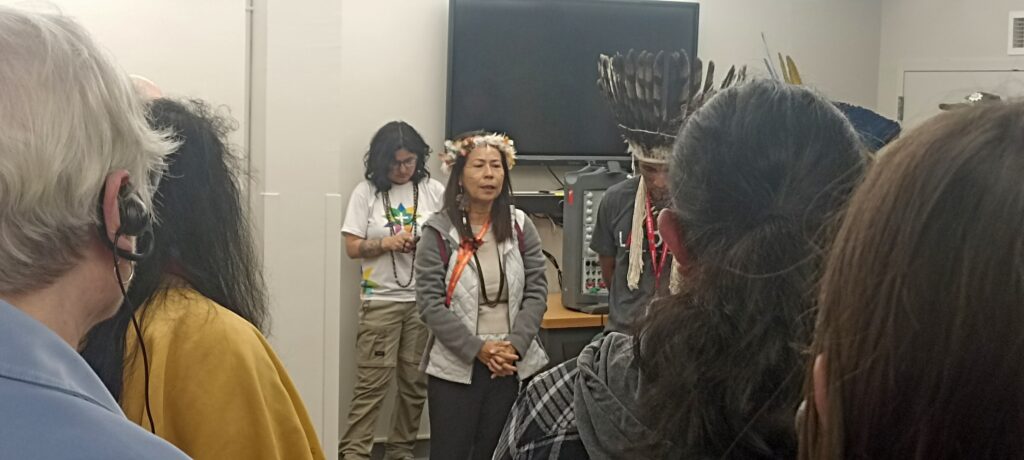Violations of the rights of Indigenous Peoples have wide-ranging implications beyond the affected communities. This recognition was central to our engagement during the 23rd session of the UN Permanent Forum on Indigenous Issues (UNPFII), which took place in New York between 15 and 26 April. Human rights abuses committed by transnational businesses on Indigenous lands are often emblematic of broader corporate impunity. As stewards of nearly 80 percent of the planet’s remaining biodiversity, Indigenous Peoples also have a key role to play in the struggle for environmental justice. But, as pointed out by the UNPFII’s chairperson during her opening remarks, “like any first responder, we need assistance.”
Throughout the session, Franciscans International both listened to better understand the ongoing human rights violations facing Indigenous communities and offered platforms to share this information more widely. Building on our past work during the negotiations on a binding UN treaty on business and human rights in Geneva, we co-organized several events to discuss ongoing cases and explore avenues for accountability.
“We don’t want our children to group up in a world that is a desert.”
Indigenous representative from Brazil
Working closely with the Mining Working Group (MGW), FI participated in a breakfast meeting where Indigenous representatives from the Americas could elaborate on the harm caused in their communities by business activities. These included widespread and underreported pollution in Ecuador and the loss of livelihoods because of deforestation to clear land for hydroelectric projects in Brazil. The MWG also organized a “North-South Conversation” and a webinar moderated by FI with young Indigenous speakers to explore different elements of the right to self-determination.
Finally, together with the US Treaty Alliance, we organized a discussion to examine the links between grassroots advocacy and international advocacy. Bringing together a broad range of experiences, speakers looked at what collective actions civil society can take to make the daily reality of frontline communities and Indigenous Peoples better heard at the UN.
The UNPFII itself also considered the impacts of businesses on Indigenous rights, highlighting that extractive industries and green energy projects often lead to the dispossession and militarization of Indigenous lands. It further warned of the harms caused in some instances by carbon and biodiversity markets. As FI continues its advocacy on environmental justice and business accountability, we will heed the voices of Indigenous Peoples and the recommendations coming from the UNPFII on the ‘just transition’ to a greener economy.

